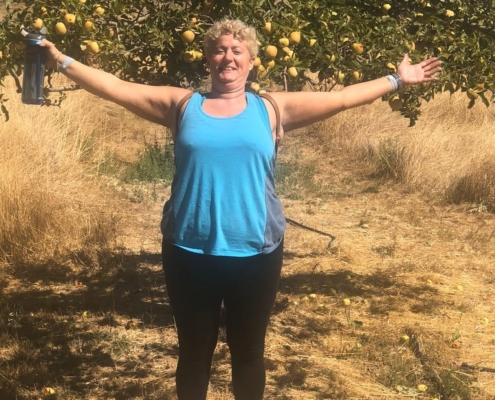Drugs related to curing cancer often have negative, degrading impact on the heart. In fact, Cardio-oncology is a phrase to describe cancer drug’s impact on heart health. There is not a direct link, but drugs (cardiotoxicity) contribute to heart degradation because even though cancer drugs extend many lives those same people experience longer-term cardiovascular side effects of cancer treatments. Cardiotoxicity coined in 2018, by Lori Minasian, M.D., who works in NCI’s Division of Cancer Prevention as deputy director. Immunotherapies such as immune checkpoint inhibitor and HER2-targeted therapies increase heart muscle inflammation that directly leads to myocardial inflammation. In addition, lifestyle factors such as high cholesterol, diabetes II, high blood pressure are often overlooked. One drug helps cure cancer but damages your heart??? How do we mitigate cardiotoxicity impact on our heart and cardiovascular systems? I suggest the foods we eat, and physical activity can help to solve this dilemma of cardiotoxicity!
There are several reasons the foods we eat impact our chances for cancer and reduce the probability of the factors overlooked by oncologists. Any excess fat impacts body chemicals such as hormone, insulin, nutrient, and estrogen production. This leads to increased cancer risk by affecting how and when cells divide and die. Foods high in whole grains, fiber, lean protein plus physical activity reduces excess fat in our body. Whole grains stabilize sugar absorption and hormone production. Colorectal cancer has direct correlation to hormone growth and consumption of processed grains and high fat foods. We also see aggressive KRAS-mutant cancer exhibits high probable susceptibility to micronutrient vitamin C found in colorful fruits and vegetables. KRAS is the mutated form of the gene that makes a protein that is involved in cell signaling pathways that control cell growth, cell maturation, and cell death. Mutated gene will not kick off the process required to regulate cell growth to cell death. If the gene is normal it is known as wild-type KRAS. A meta-analysis of 29 studies found low fat diet, healthy quality diet, regular consumption of fiber such as vegetables and high-quality protein intake are beneficial to breast, prostate, and colorectal cancers. Physical activity along with healthy food intake increase probability of reducing excess body fat.
Physical activity helps control weight, reduce sex hormones, insulin, and strengthen the immune system; and it can boost quality of life during cancer treatment. American Cancer Society and the National Cancer Institute recently found that “leisure time” activity reduced the risk of several types of cancer including breast, colon and endometrioma cancers, but also esophageal cancer, liver cancer, stomach cancer, kidney cancer, and myeloid leukemia. In addition, physical activity was strongly associated with a decreased risk of multiple myeloma, a blood cancer, as well as cancers of the head and neck, rectum, bladder, and lung (in current and former smokers). Leisure time activity is a moderate 20 minutes of walking at 3MPH to vigorous 6-8MPH. Not only does physical activity contribute to weight loss but also decreases estrogen and insulin, 2 hormones involved with cancer. The American Cancer Society promotes being more physically active. No matter your age or activity level, increasing or starting a activity routine, along with healthy eating pattern are clearly helpful to mitigating many different cancers and the possibility of cardiotoxicity.

